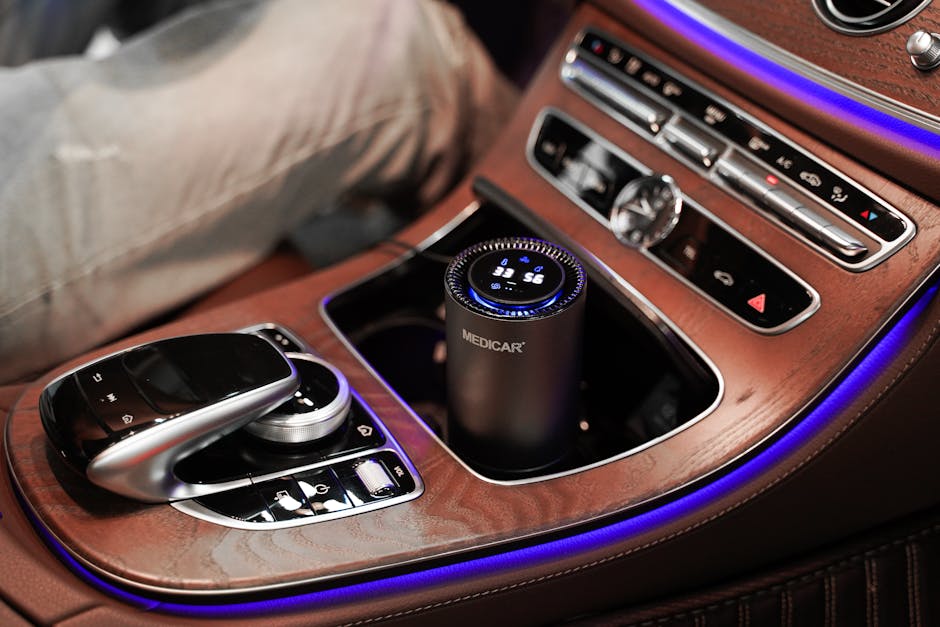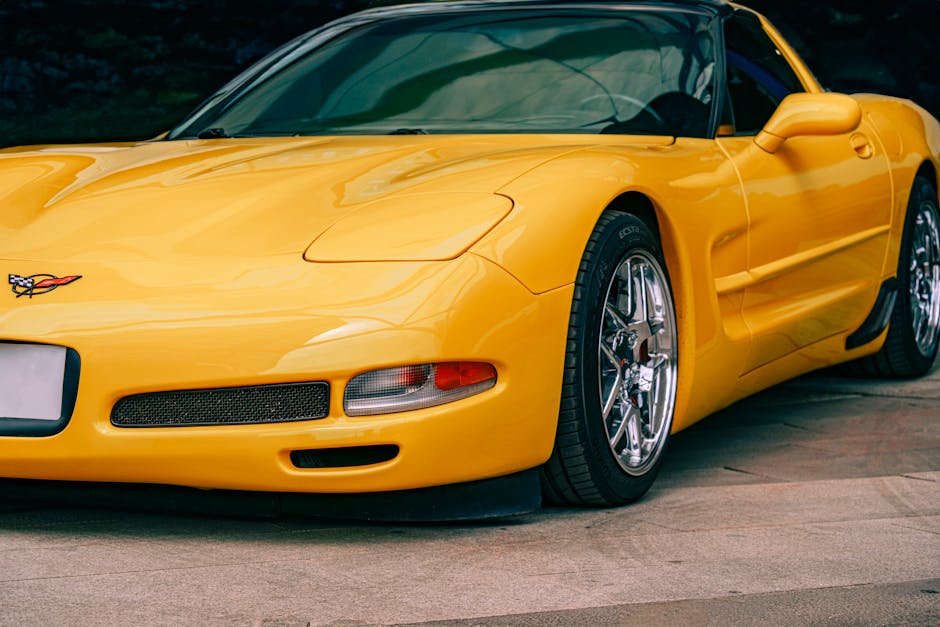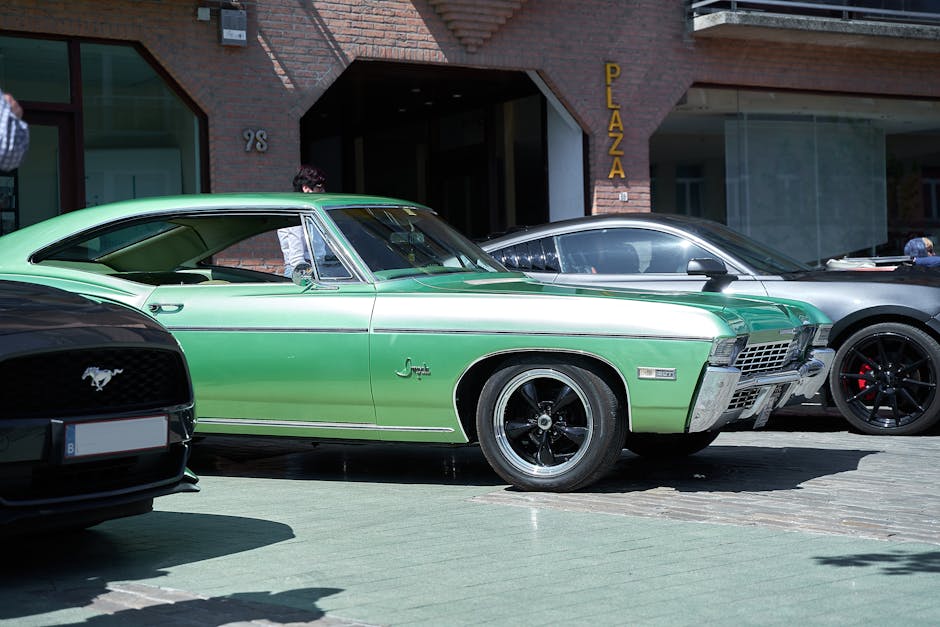 Swipe for more categories
Swipe for more categories 
Car Facts Sheet
Car Facts Sheet
Welcome to our latest installment, designed to fuel your curiosity about cars! This post aims to share fascinating, little-known facts about these ubiquitous machines that have profoundly transformed the way we live, work, and travel. Ever wondered about the origins of the car, or how a car’s engine really works? Perhaps you’re intrigued by the future of automotive technology, or interested in learning about the most illustrious car brands in history. Whatever your motivation, we are here to take you on a journey through the mesmerizing world of cars. Get ready, fasten your seat belts, and rev up your brain engines for this exciting ride.
(First Car Fact): Identifying the Birth of the Automobile: Delving into the historical aspect of when the first car was produced and who invented it.

The birth of the automobile can be traced back to as early as the late 1800s, an era of innovation and industrial revolution. German engineer Karl Benz is accredited with this groundbreaking creation, developing the ‘Benz Patent-Motorwagen’ in 1885. Fast forward to 1886, Benz’s vehicle had its inaugural drive, rightfully earning its place in history as the world’s first automobile.
Interestingly, the ‘Motorwagen’ was a far cry from the modern cars we’re familiar with today. It was a three-wheeled vehicle powered by an internal combustion engine, promising a speed of 10 miles per hour – an amazing feat for its time. This remarkable invention of Benz paved the way for the evolution of the cars that we see zooming past on roads today. Through this fact-sheet, we delve into this remarkable journey and the evolution of the automobile.
(Second Car Fact): Details about the Most Expensive Car Ever Sold: Providing facts about the most expensive car ever sold at auctions and the reason for its high valuation.

The title of the most expensive car ever sold at auction is held by a 1962 Ferrari 250 GTO, which fetched a whopping $48.4 million in 2018. Desirable for its rarity – only 36 were ever made – the car boasts a rich history, which heightens its unique appeal. Being an exemplar of motoring design and engineering, this precise model was victorious in the 1962 Italian GT Championship, dramatically adding to its credibility and value.
Its distinct design, showcasing a sleek, aggressive look along with high mechanical performance, contributes drastically to its high valuation. This vehicle encapsulates a perfect blend of rarity, historic value, design, and performance, which justifies its monumental price tag. Ultimately, the value of a car like this 1962 Ferrari GTO is contingent upon its buyer’s perception. To the winning bidder, the car represented an irreplaceable piece of automotive history.
(Third Car Fact): Highlighting the Fastest Car in the World: Providing facts and details about the current fastest car in the world, its top speed, and the technology behind it.

Photo by Tim Samuel on Pexels
So, the fastest car in the world: let’s jump right into it.
The Bugatti Veyron Super Sport currently holds the title as the fastest car globally, boasting a staggering top speed of 267.857 mph. Imagine that heart-racing thrill.
But what powers this speed demon, you ask?
Propelling the Veyron is a quad-turbocharged 8.0L W16 engine, an insane piece of technology that delivers 1,200 brake horsepower. The engineering precision devoted to eliminating turbo lag propels the Veyron into another league.
Its meticulously devised seven-speed direct-shift gearbox, combined with an all-wheel-drive system, ensures the vehicle can effectively manage its power and keep traction at high speeds.
Intriguing, isn’t it?
But there’s more behind it than meets the eye. The Veyron’s aerodynamic design contributes significantly to its performance, allowing it to slice through the wind with minimal resistance. It truly is a marvel of modern automobile engineering.
(Fourth Car Fact): Discussing the Countries that Manufacture the Most Cars: Highlighting the top countries in the world in terms of car production and their most popular brands.

Photo by N.N.Hùng Chanel on Pexels
When we zoom into global car production, a handful of countries race ahead of the pack. Japan, known for its strategic blend of automation and craftsmanship, birthed the likes of Toyota, contributing 4 million vehicles annually. Close behind, Germany gracefully merges luxury and innovation under power brands like BMW.
Across the pond, United States plants buzz work around the clock, pushing Ford and General Motors vehicles off the line. However, the golden crown goes to China, surpassing the competition with a whopping 14 million vehicles courtesy of brands like Geely. Each country has its unique traits and nuances, highlighting the diverse landscape of car manufacturing. It truly is a global game- and a thrilling one at that.
(Fifth Car Fact): The Concept of Auto Pilots in Cars: Introducing the concept of autonomous or self-driving cars and the current state of this technology.

Photo by Wijs (Wise) on Pexels
From state-of-the-art sensors to sophisticated algorithms, the concept of auto pilots in cars is a technological marvel. They operate on the principles of autonomous technology, underpinned by artificial intelligence.
Self-driving cars have evolved dramatically in recent years, pushing boundaries in both engineering and legislation. Although still in its developmental stages, several car manufacturing giants have rolled out prototypes showing promising potential. These cars navigate using LiDAR systems, cameras, and intricate map data, offering safer and more efficient driving potential.
Yet, widespread adoption of this technology is still a future prospect, as numerous regulatory and ethical considerations are being scrutinized. The leaps made in this field, however, affirm that the self-driving cars could soon revolutionise our transportation experience. As this fifth car fact illustrates, the automotive industry is accelerating towards a future where roads and humans seamlessly coexist with autonomous vehicles.
(Sixth Car Fact): Understanding the Longest Car Journey Ever: Sharing the story and details of the longest car journey ever made, including the reasons and the challenges faced.

Photo by Yusuf Çelik on Pexels
Imagine setting off for a road trip that doesn’t merely cross different states, but indeed spans several continents. The Guinness Record for the ‘longest car journey ever‘ is held by Emil and Liliana Schmid of Switzerland, who have travelled over 741,065 km across 186 countries in their Toyota Land Cruiser, starting from 1984 till date.
This journey was driven not just by their shared passion for exploring, but also a desire to raise awareness about various global issues. Navigating through extreme climates and terrains only marked a section of the countless challenges they faced. Visa regulations, language barriers, political unrest, breakdowns in remote regions, and health issues also tested their resolve continually.
The Schmid’s journey underscores the ingenuity of human spirit and automobile endurance. It’s a journey that’s still ongoing, continually rewriting the record they themselves set.
(Seventh Car Fact): The Environmental Impact of Cars: Discussing the environmental implications of cars, including carbon dioxide emissions and the role of electric vehicles.

Photo by Tibor Szabo on Pexels
Air pollution, global warming, and depletion of natural resources; cars significantly impact our environment.
Traditional internal combustion engines emit harmful carbon dioxide and thus, contribute significantly to global warming. For instance, a single car can emit nearly six tons of carbon dioxide annually, posing a drastic threat to our planet’s health.
However, hope resonates, as the introduction of electric vehicles offers a cleaner alternative. Electric vehicles, propelled by electricity stored in rechargeable batteries, produce zero tailpipe emissions and can be powered by renewable energy sources.
With the continuous advancements in technology, utilities, and infrastructure, the adoption of electric vehicles is becoming increasingly accessible and sustainable, serving as the future of the automotive industry.
Although the broader environmental implications of car usage remain a complex issue, innovations like the electric vehicle provide us a glimpse of a cleaner, greener future.
(Eight Car Fact): Insights on the Production of Cars: Sharing statistics about how many cars are produced each day and the extensive process behind car manufacturing.

Photo by Wijs (Wise) on Pexels
Every day, approximately 165,000 cars roll off assembly lines globally. This staggering number is a testament to the extensive process of car manufacturing.
Consider the production line’s intricate ballet: From the initial design phase to the final testing, each car produced undergoes more than 30 thousand individual parts integrated meticulously.
Robots, alongside skilled workers, gracefully weld and secure pieces together, while amazing laser precision technology brings most accuracy. Manufacturing a car takes approximately 18-20 hours from start to finish, but finalizing the design? That can take years.
Interestingly, close to 50% of a car’s total production time is spent on painting to ensure a high-quality finish and long-lasting color durability.
The auto-manufacturing sector globally really is a testament to human ingenuity and mechanical prowess.


